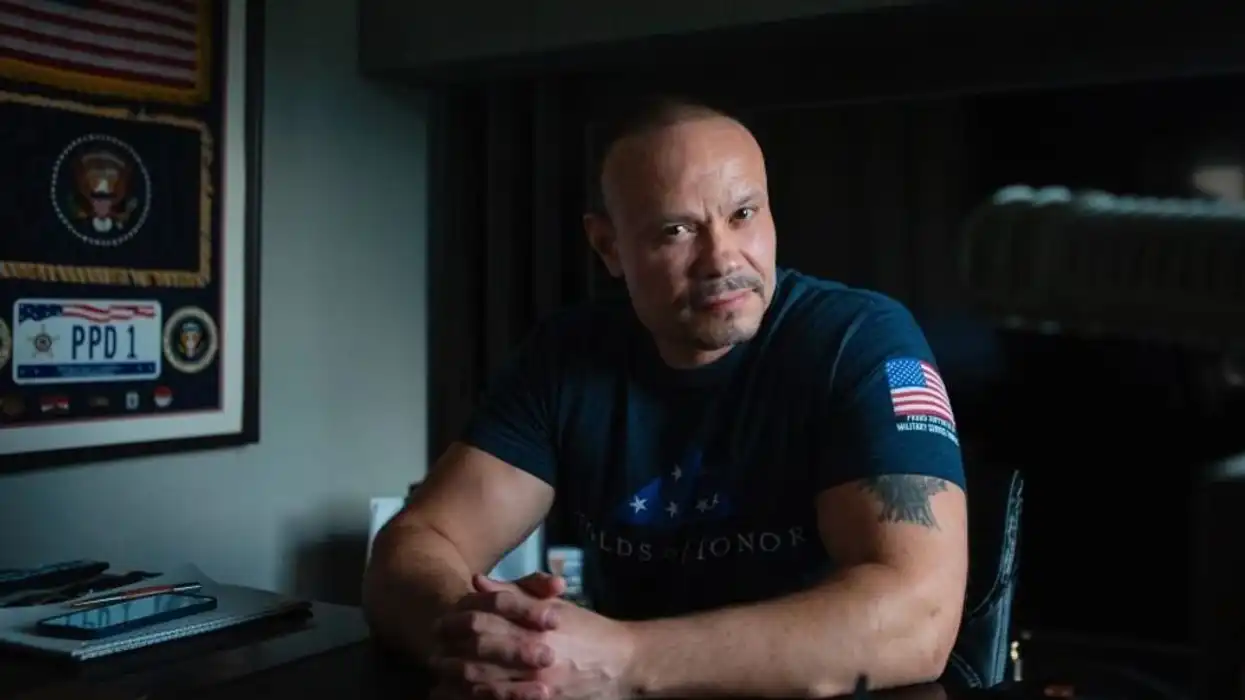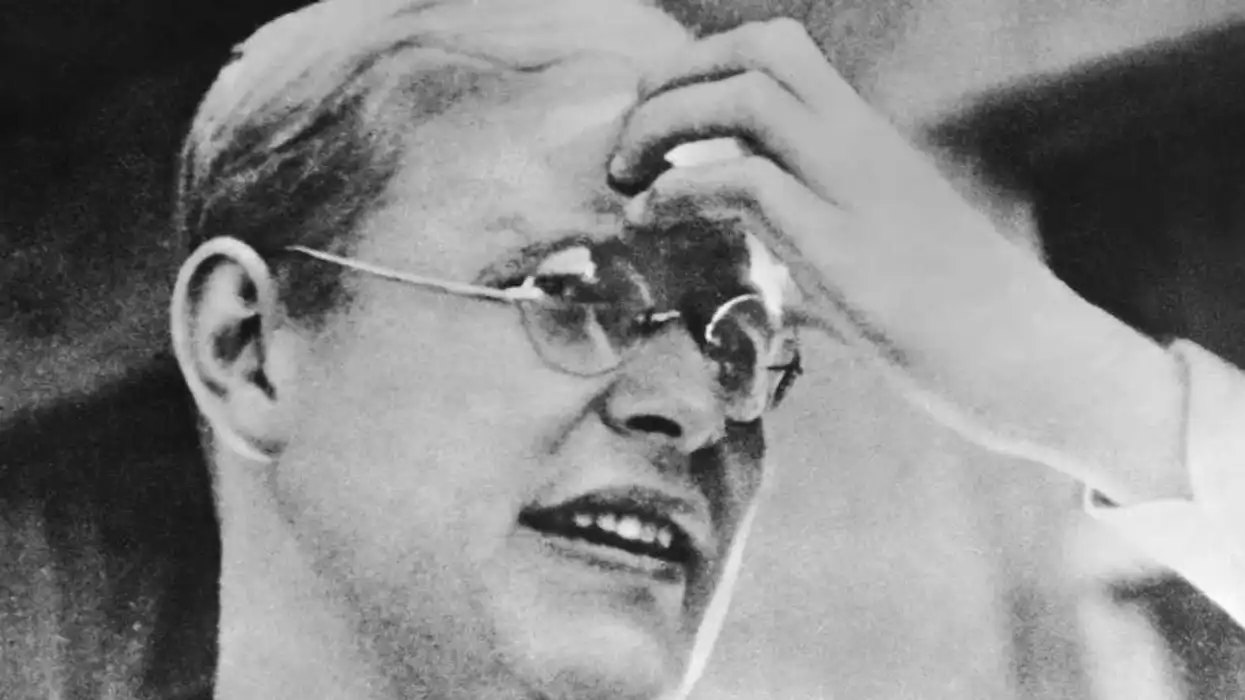
© 2026 Blaze Media LLC. All rights reserved.
What We Found in a Boston Children's Hospital Policy Manual About Research on 'Wards of the State
February 20, 2014
"Children who are Wards of the state may be included in research that presents minimal risk...or greater than minimal risk with a prospect of direct benefit."
That's a line from Boston Children's Hospital's "Clinical Investigations Policy and Procedure Manual. It's the same facility that took over the care of 15-year-old Justina Pelletier against her parents' wishes last year and they continue to wonder why.
 Justina Pelletier has been in the custody of the state since Feb. 14, 2013. (Image source: Facebook)
Justina Pelletier has been in the custody of the state since Feb. 14, 2013. (Image source: Facebook)
The parents of the teen from West Hartford, Conn., at the center of a custody, patient's rights and medical diagnosis battle have questioned the motives as to why Boston Children's Hospital countered the medical diagnosis and recommended treatment set by a Tufts Medical Center physician years earlier.
Justina was taken as a ward of the state by the Massachusetts Department of Children & Families on Feb. 14, 2013, and remains in the child services department's custody still.
The hospital's clinical investigations policy continues (emphasis added):
Children who are Wards of the state may be included in research that presents greater than minimal risk with no prospect of direct benefit (46.406 (50.53) or 46.407 ( 50.54) only if the [institutional review board] determines and documents that such research isRelated to their status as wards; or
Conducted in schools, camps, hospital, institutions, or similar settings in which the majority of children involved as participants are not wards.
In such cases, the patient is represented by at least one advocate, appointed by the institutional review board, who will act on their behalf and in the patient's best interest.
Any time research would involve a ward of the state, the document says a proposal must be presented in detail to the institutional review board and be approved by DCF's Research Proposal Review Committee.
Boston Children's Hospital declined to comment about the case and about the policy to TheBlaze.
Dr. Richard Boles, a pediatrician in the Los Angeles area and the medical director of Courtagen Life Sciences, a biotechnology and DNA sequencing company specializing in metabolic disorders, told TheBlaze it wouldn't be out of the ordinary for Boston Children's Hospital to conduct medical research.
"They’re a research facility," he said.
Boles told TheBlaze that any research involves ethics committees and is "up front." He said the system is so procedural now that if he wanted to survey his own patients for something as simple asking where they bought their vitamins, so he could advise his other patients accordingly, he would have to go through a whole protocol and a wealth of paperwork.
BCH's clinical investigation policy echoes language in regulations set by the federal Department of Health and Human Services. According to HHS, for children to be involved in research, parental or guardian permission must be given. A "guardian," is defined as the "individual who is authorized under applicable State or local law to consent on behalf of a child to general medical care," which, in the case of Justina Pelletier, would be DCF.
Other institutions, like Johns Hopkins Medicine and Duke University Health System to name a couple, have similar guidelines for research involving children, including those who are under care of the state.
[sharequote align="center"]“Children who are Wards of the state may be included in research that presents minimal risk…"[/sharequote]
But an article published in the journal Pediatrics in 2008 argued that the protections for wards of the state in research might not go far enough.
"Current federal regulations mandate additional safeguards, beyond those that apply to all pediatric research, for some research with wards of the state. Although these additional requirements are attentive to the concerns research with wards of the state raises, we argue that they do not go far enough," the authors wrote.
"Society is obligated to ensure the harms wards of the state have already experienced due to parental mistreatment or abandonment are not compounded by further harm from inappropriate clinical research enrollment," they continued. "This means wards of the state must be appropriately protected from risk and from being unfairly selected to bear burdens in clinical research. To these ends, additional safeguards and modifications to existing guidelines are needed."
On its website, BCH describes itself as "home to the world's largest research enterprise based at a pediatric hospital" with "$225 million in annual funding, including more federal funding than any other pediatric facility."
It is unknown if Justina Pelletier is involved in a research program. The teen was diagnosed in 2011 with mitochondrial disease, a disease where the mitochondria (the energy-producing organelle in cells) does not function properly leading to a variety of symptoms including pain, fatigue and gastrointestinal issues. While being treated for this disease, her parents, Linda and Lou, said she was doing well.
 Justina Pelletier with her parents, Linda and Lou. (Image source: Facebook)
Justina Pelletier with her parents, Linda and Lou. (Image source: Facebook)
In February 2013, she came down with the flu, which for mitochondrial patients can be more severe, her older sister Jessica told TheBlaze, and was recommended by a Connecticut hospital to be transferred to Boston Children's Hospital where she was supposed to see a gastrointestinal specialist. Instead, Lou Pelletier told TheBlaze Monday she was seen by a neurologist as she came through the hospital's emergency room who said she didn't have mitochondrial disease but somatoform disorder, a psychological disorder that said the symptoms she experienced originated in her head.
Boston doctors wanted to take a different approach with Justina's treatment, something which Lou said they were initially on board with until they found out it meant taking her off her treatments for mitochondrial disease.
When they arrived at Boston Children's on Feb. 14, 2013, to discharge Justina and take her to Tufts instead, they were accused of over-medicalizing their child, a form of abuse, and DCF took custody. Since then the Pelletiers have been in and out of court fighting to get Justina back and treated for mitochondrial disease. Without treatment for this disease for more than a year, Lou said his daughter is failing.
"If she's not in the proper facility, she will die," Lou told TheBlaze earlier this week.
"I am trying to save my daughter's life," he said, breaking a court-imposed gag order, something which DCF filed that he be held in contempt of court for doing.
Featured image via illustratorsam/Flickr.
Want to leave a tip?
We answer to you. Help keep our content free of advertisers and big tech censorship by leaving a tip today.
Want to join the conversation?
Already a subscriber?
more stories
Sign up for the Blaze newsletter
By signing up, you agree to our Privacy Policy and Terms of Use, and agree to receive content that may sometimes include advertisements. You may opt out at any time.
Related Content
© 2026 Blaze Media LLC. All rights reserved.
Get the stories that matter most delivered directly to your inbox.
By signing up, you agree to our Privacy Policy and Terms of Use, and agree to receive content that may sometimes include advertisements. You may opt out at any time.






